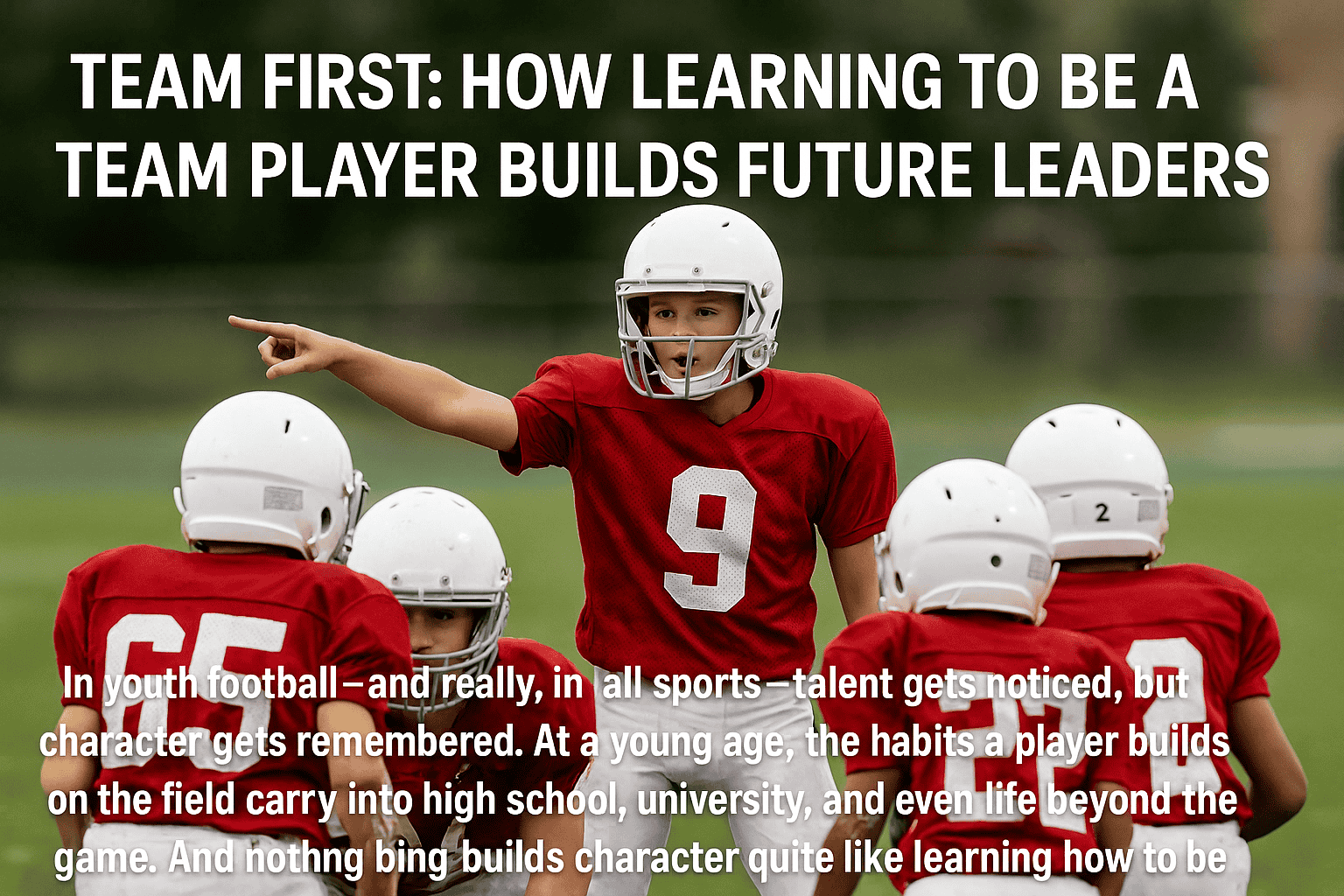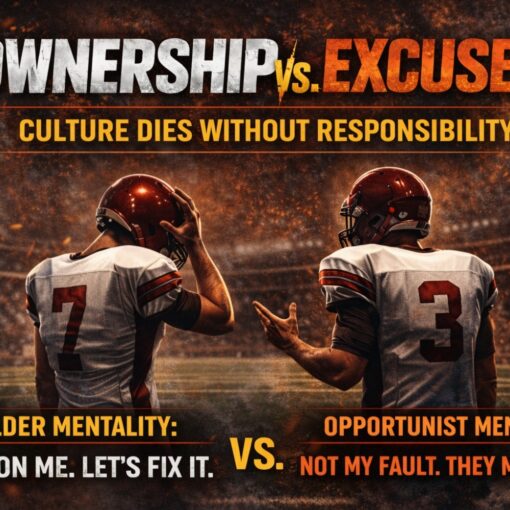In youth football—and really, in all sports—talent gets noticed, but character gets remembered. At a young age, the habits a player builds on the field carry into high school, university, and even life beyond the game. And nothing builds character quite like learning how to be a true team player.
The Season Is Just a Chapter
It’s easy to think of each season as the finish line, but really, it’s just another chapter in the bigger book of development. Wins, losses, playing time, and depth charts are all part of the story—but they aren’t the end of it. What lasts are the lessons: learning to compete, learning to support teammates, and learning to work within a unit bigger than yourself.
Why Teamwork Matters for Development
Being a team player at a young age isn’t about sacrificing ambition. It’s about understanding that football requires every player pulling in the same direction. When a young athlete learns to:
- Celebrate others’ success, even when it isn’t their own,
- Accept their role, whether starter or backup, and use it to improve,
- Respect coaches and teammates, building trust in the locker room,
they aren’t just playing the game—they’re building leadership skills. Those are the very skills that will separate them as high school captains, university recruits, and eventually as professionals in whatever path they choose.
Leadership Is Earned, Not Given
Leadership starts with being dependable. Coaches and teammates notice who shows up prepared, who gives effort every practice, and who puts the team’s needs ahead of their own. A young quarterback or player who does those things earns respect, even if they aren’t the starter. That respect is the foundation of leadership—and it lasts much longer than a single season.
Parents’ Role in the Process
Parents play a key part in reinforcing this mindset. The best thing a parent can do isn’t to campaign for more playing time—it’s to encourage growth, resilience, and humility. Supporting your child through both highs and lows teaches them that adversity isn’t punishment, it’s preparation.
The Bigger Picture
When the season ends, the lessons don’t. Every practice, every rep, every role—whether glamorous or not—shapes the type of athlete and person a child becomes. By learning to put the team first now, young players set themselves up for a future where leadership, character, and trust come naturally.
In the end, being a team player isn’t just about football—it’s about life. The game is temporary, but the lessons last forever.
Winter Quarterback Training







